
Benishangul People's Liberation Movement or BPLM is an armed rebel group based in the Benishangul-Gumuz Region of Ethiopia. [1] BPLM signed peace deals with the federal Ethiopian government in 2005, 2013 and 2022. [2] [3]

Benishangul People's Liberation Movement or BPLM is an armed rebel group based in the Benishangul-Gumuz Region of Ethiopia. [1] BPLM signed peace deals with the federal Ethiopian government in 2005, 2013 and 2022. [2] [3]
According to Tigrai Online , Benishangul People's Liberation Movement was created in 1996 as an armed rebel movement. [4] An Ethiopian prosecutor claimed that BPLM was created by Abdulwahab Mehadi in 2007. [1]
BPLM claimed in 2018 that the Berta people and the Gumuz people were "oppressed by all three of Ethiopia's most powerful communities" [5] and that the Oromo Liberation Front had attacked local inhabitants in Kamashi Zone. [6]
According to an Ethiopian prosecutor, Abdulwahab Mehadi headed BPLM from 2007 to 2015. [1] Husien Ahmed was one BPLM's leaders in 2013. [4] [2]
BPLM signed a peace deal with the federal Ethiopian government in 2005. Fighting resumed in 2006. [2]
In June 2013, BPLM and the federal government agreed to a peace deal in 2013. [4] BPLM members were promised an amnesty from prosecution and governmental support under the deal. BPLM detainees were released. [2] Fighting resumed in 2019.
In October 2022, the BPLM signed another peace agreement with the government and agreed to conduct dialogue with the regional government. [7]
BPLM received support, including military training, in Eritrea, according to an Ethiopian prosecutor [1] and Husien Ahmed, one of BPLM's leaders. [4] [2]
In 2015, ten BPLM members were charged with armed attacks against the Ethiopian National Defense Force (ENDF) in a 30-minute gun battle at Bulfadto in Asosa. [1]

Benishangul-Gumuz is a regional state in northwestern Ethiopia bordering Sudan. It was previously known as Region 6. The region's capital is Assosa. Following the adoption of the 1995 constitution, the region was created from the westernmost portion of the Gojjam province, and the northwestern portion of the Welega Province. The name of the region comes from two peoples – Berta and Gumuz.
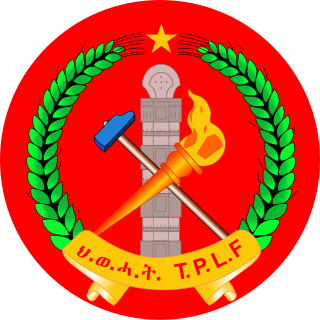
The Tigray People's Liberation Front, also called the Tigrayan People's Liberation Front, is a left-wing ethnic nationalist, paramilitary group, and the former ruling party of Ethiopia. It was classified as a terrorist organization by the Ethiopian government from May 2021 until its removal from the list in March 2023. In older texts and Amharic publications, it is known as Woyane or Wayane.

The Benishangul Gumuz People's Democratic Unity Front was a political party in Ethiopia. In the 2010 elections, the BGPDUF won 9 seats. In local elections held the same day, the BGPDUF won 98 of the 99 seats in the Benishangul-Gumuz parliament.

The Ethiopian People Patriotic Front is a rebel group in Ethiopia, founded on 15 June 1998, in the Eritrean-Ethiopian border town of Awegaro. It was originally established as the Ethiopian Democratic Forces.

The Sudan Revolutionary Front, or the Sudanese Revolutionary Front (SRF), is an alliance between Sudanese factions that was created in opposition to the government of President Omar al-Bashir. It was declared on 12 November 2011, following several months of support by Darfuri rebel groups for the Sudan People's Liberation Movement-North in the conflict in South Kordofan and Blue Nile.

The Oromo Liberation Army is an armed opposition group active in the Oromia Region of Ethiopia. The OLA consist primarily of former armed members of the pre-peace deal Oromo Liberation Front (OLF) who refused to disarm out of skepticism of the peace deal, and former youth protestors who grew disillusioned with nonviolent resistance.
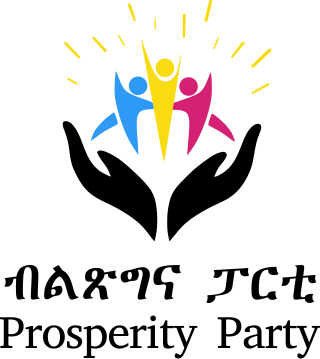
The Prosperity Party is a political party in Ethiopia that was established on 1 December 2019 as a successor to the Ethiopian People's Revolutionary Democratic Front (EPRDF) by incumbent Prime Minister Abiy Ahmed. The merger into a countrywide party is part of Abiy's general policy of distancing the country's politics from ethnic federalism. It ran for the first time in the 2021 general election.

Fano is an ethno-nationalist Amhara militia and former protest movement. It has engaged in violent clashes throughout Ethiopia in the name of neutralizing perceived threats to the Amhara people. Fano has absorbed many units and personnel of the Amhara Regional Special Forces that did not integrate into the Ethiopian National Defense Force (ENDF). Fano militias are have been involved in armed conflicts with the Tigray People's Liberation Front (TPLF), the Oromo Liberation Army (OLA), and the ENDF. They have also clashed with the Sudanese Armed Forces (SAF) on the border of Ethiopia and Sudan.
The Metekel massacre was a massacre that took place on the night of 22–23 December 2020, in the Metekel Zone of the Benishangul-Gumuz Region, Ethiopia. As of 23 December 2020, the Ethiopian Human Rights Commission counted 100 deaths. Authorities responded by killing 42 suspects and arresting seven officials.
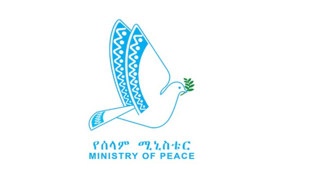
The Ministry of Peace is an Ethiopian government department created in 2018 that aims to encourage peace processes to prevent and resolve armed conflict in Ethiopia and to support equitable development among the Regions of Ethiopia.

The Benishangul-Gumuz conflict was an armed conflict mostly in the Metekel Zone of the Benishangul-Gumuz Region in Ethiopia that started in 2019, until peace agreement signed between the rebel groups and the government of Ethiopia in October 2022.
Events in the year 2021 in Ethiopia.
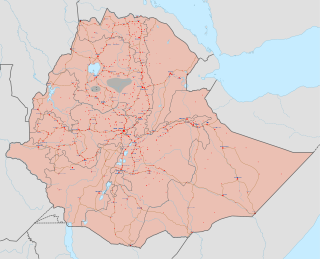
Following the 2018 dissolution of the ethnic federalist, dominant party political coalition, the Ethiopian People's Revolutionary Democratic Front, there was an increase in tensions within the country, with newly resurgent regional and ethnically based factions carrying out armed attacks on military and civilians in multiple conflicts throughout Ethiopia.
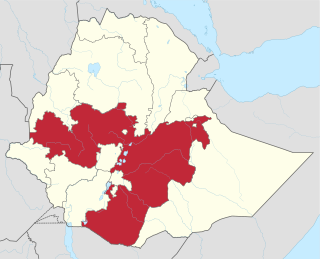
The OLA insurgency is an armed conflict between the Oromo Liberation Army (OLA), which split from the Oromo Liberation Front (OLF) in 2018, and the Ethiopian government, continuing in the context of the long-term Oromo conflict, typically dated to have started with the formation of the Oromo Liberation Front in 1973.

The United Front of Ethiopian Federalist and Confederalist Forces (UFEFCF) was a coalition of six Ethiopian rebel groups, including the Tigray People's Liberation Front (TPLF) before 2022 and the Oromo Liberation Army (OLA), created in November 2021 during the Tigray War.

Abiy Ahmed's tenure as prime minister of Ethiopia began on 2 April 2018 with his swearing-in at the Ethiopian parliament, succeeding Hailemariam Desalegn. Abiy is the first person of Oromo descent to hold the office, and became chair of the ruling Prosperity Party after the dissolution of the Ethiopian People's Revolutionary Democratic Front (EPRDF) in November 2019.

Since the 1990s, the Amhara people of Ethiopia have been subject to ethnic violence, including massacres by Tigrayan, Oromo and Gumuz ethnic groups among others, which some have characterized as a genocide. Large-scale killings and grave human rights violations followed the implementation of the ethnic-federalist system in the country. In most of the cases, the mass murders were silent with perpetrators from various ethno-militant groups—from TPLF/TDF, OLF–OLA, and Gumuz armed groups.
The 1995 Ethiopian Federal Constitution formalizes an ethnic federalism law aimed at undermining long-standing ethnic imperial rule, reducing ethnic tensions, promoting regional autonomy, and upholding unqualified rights to self-determination and secession in a state with more than 80 different ethnic groups. But the constitution is divisive, both among Ethiopian nationalists who believe it undermines centralized authority and fuels interethnic conflict, and among ethnic federalists who fear that the development of its vague components could lead to authoritarian centralization or even the maintenance of minority ethnic hegemony. Parliamentary elections since 1995 have taken place every five years since enactment. All but one of these have resulted in government by members of the Ethiopian People's Revolutionary Democratic Front (EPRDF) political coalition, under three prime ministers. The EPRDF was under the effective control of the Tigray People's Liberation Front (TPLF), which represents a small ethnic minority. In 2019 the EPRDF, under Abiy, was dissolved and he inaugurated the pan-ethnic Prosperity Party which won the 2021 Ethiopian Election, returning him as prime minister. But both political entities were different kinds of responses to the ongoing tension between constitutional ethnic federalism and the Ethiopian state's authority. Over the same period, and all administrations, a range of major conflicts with ethnic roots have occurred or continued, and the press and availability of information have been controlled. There has also been dramatic economic growth and liberalization, which has itself been attributed to, and used to justify, authoritarian state policy.

The Ethiopia–Tigray peace agreement, commonly called the Pretoria Agreement or the Cessation of Hostilities Agreement (CoHA), is a peace treaty between the government of Ethiopia and the Tigray People's Liberation Front (TPLF) that was signed 2 November 2022, wherein both parties agreed to a "permanent cessation of hostilities" to end the Tigray War. The agreement was made effective the next day on 3 November, marking the two-year anniversary of the war.
The Gumuz People’s Democratic Movement or GPDM is an armed rebel group based in the Benishangul-Gumuz Region of Ethiopia. They were a participant in the Benishangul-Gumuz conflict and signed a peace agreement with the government in October 2022.